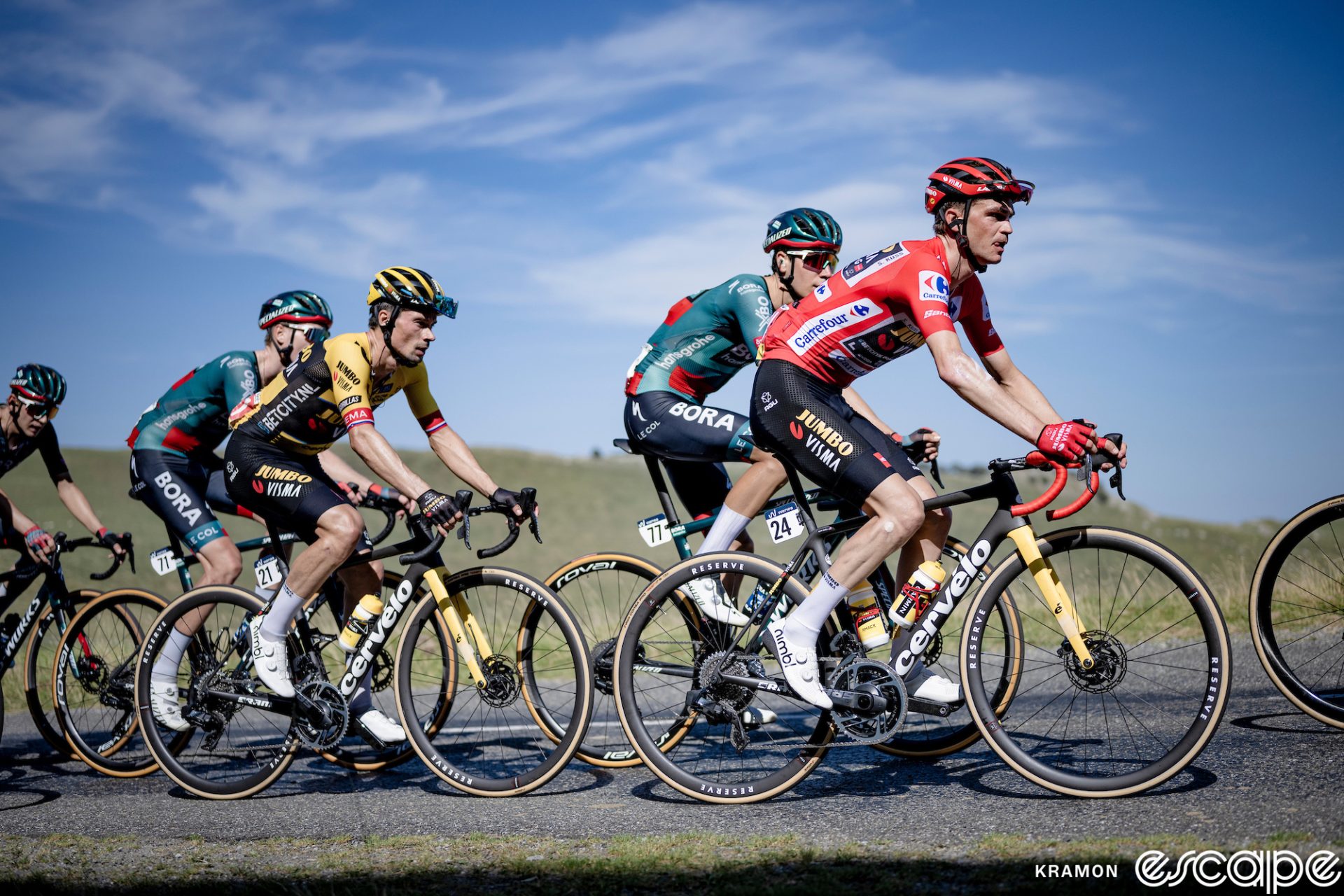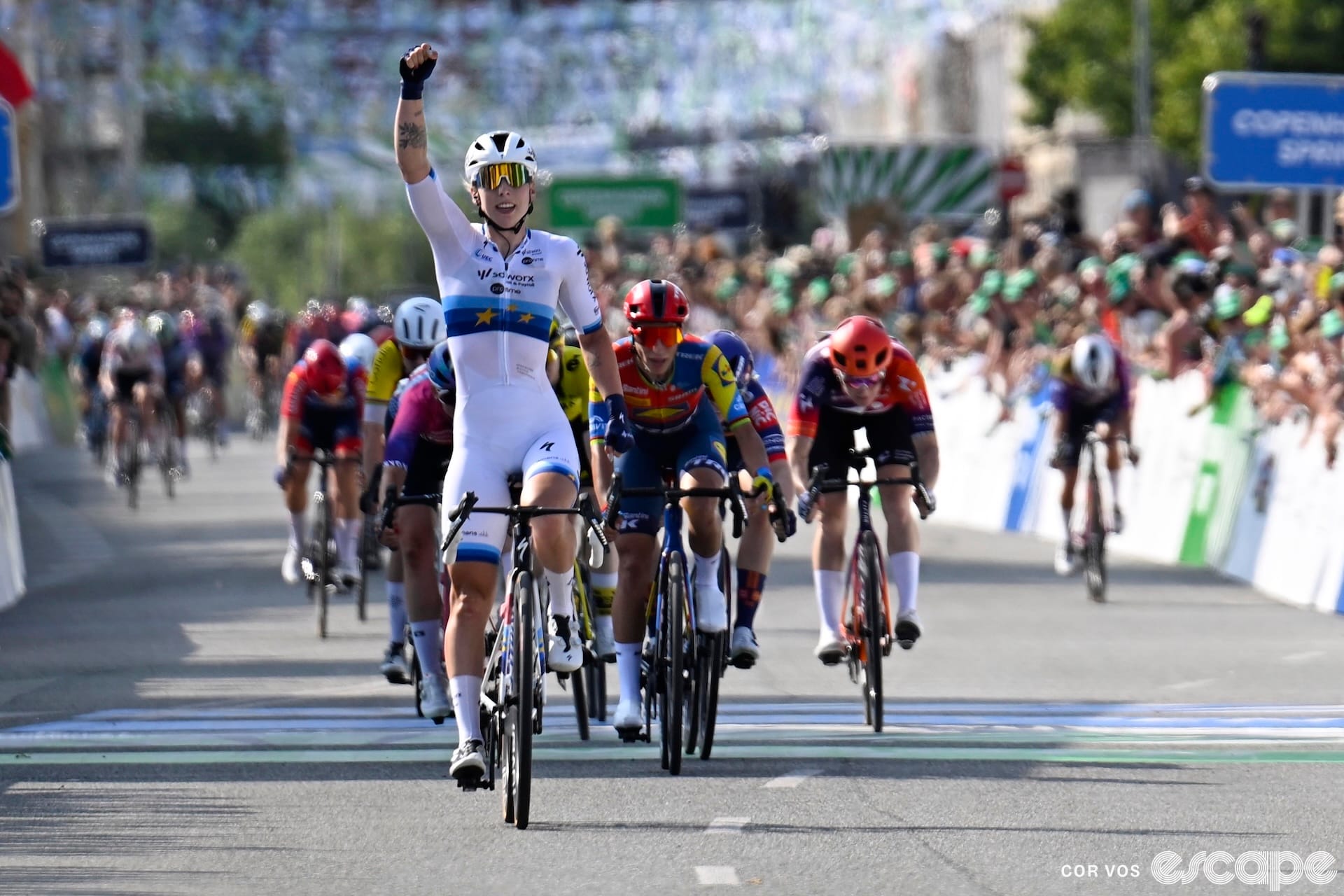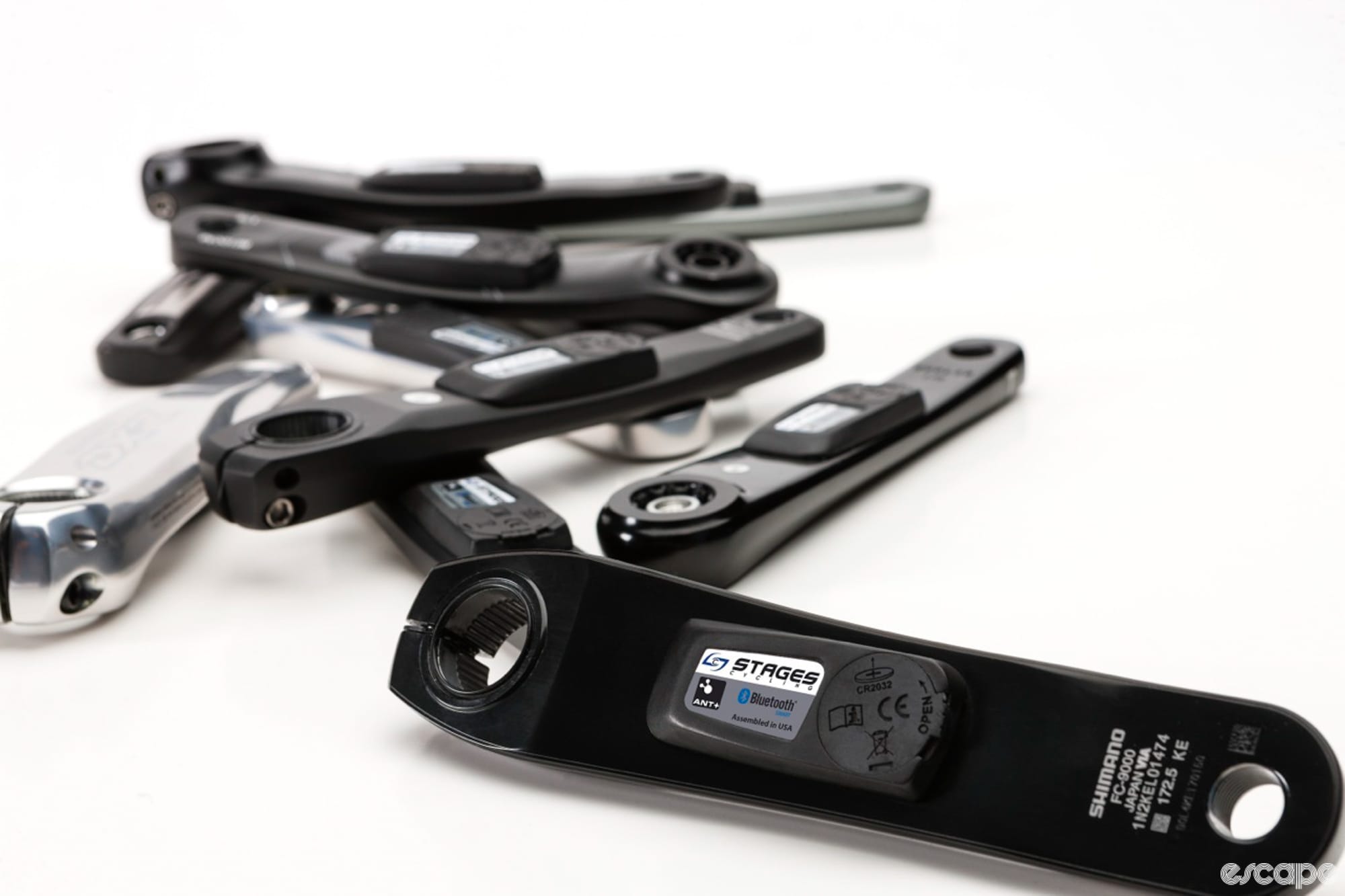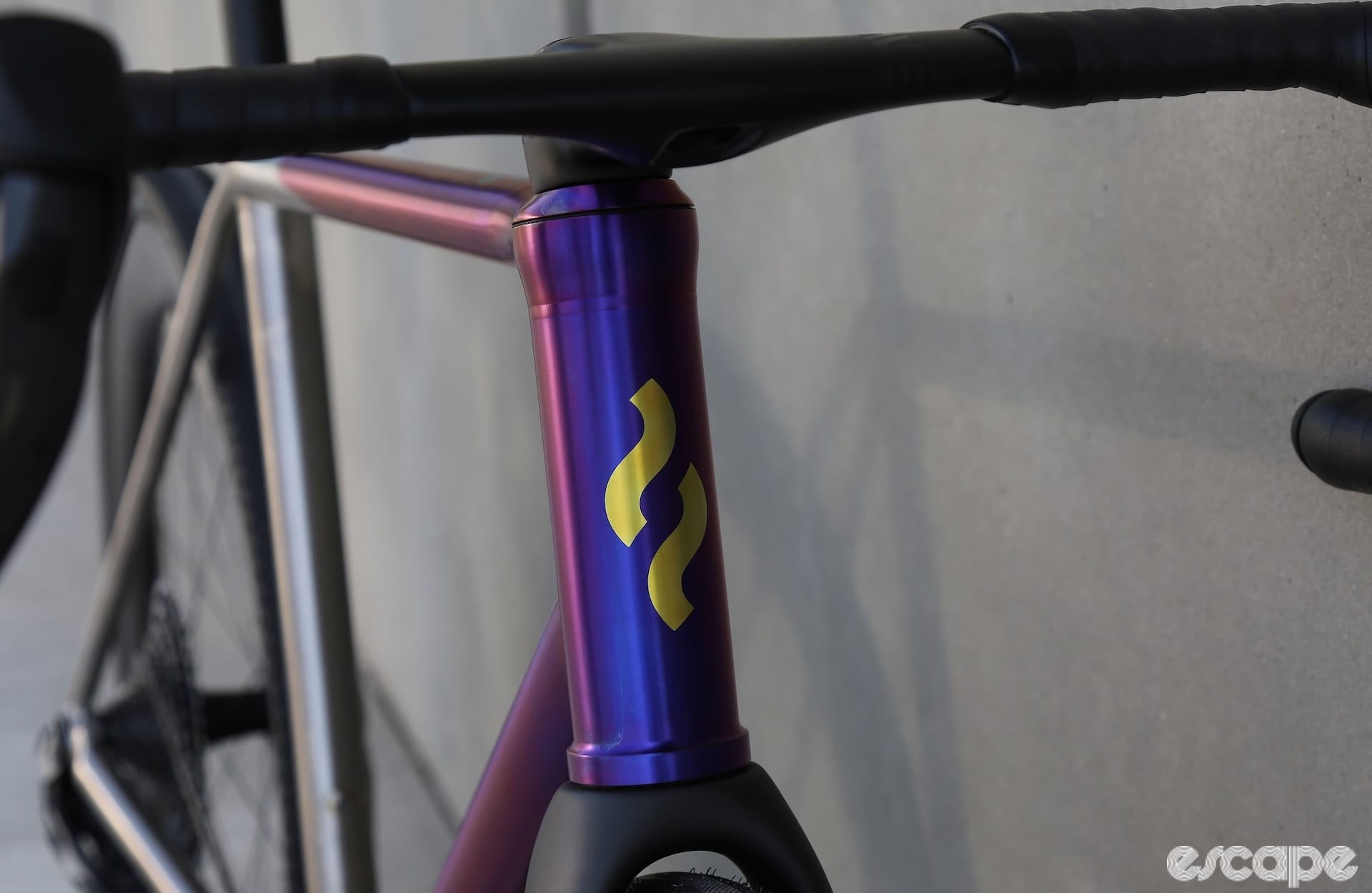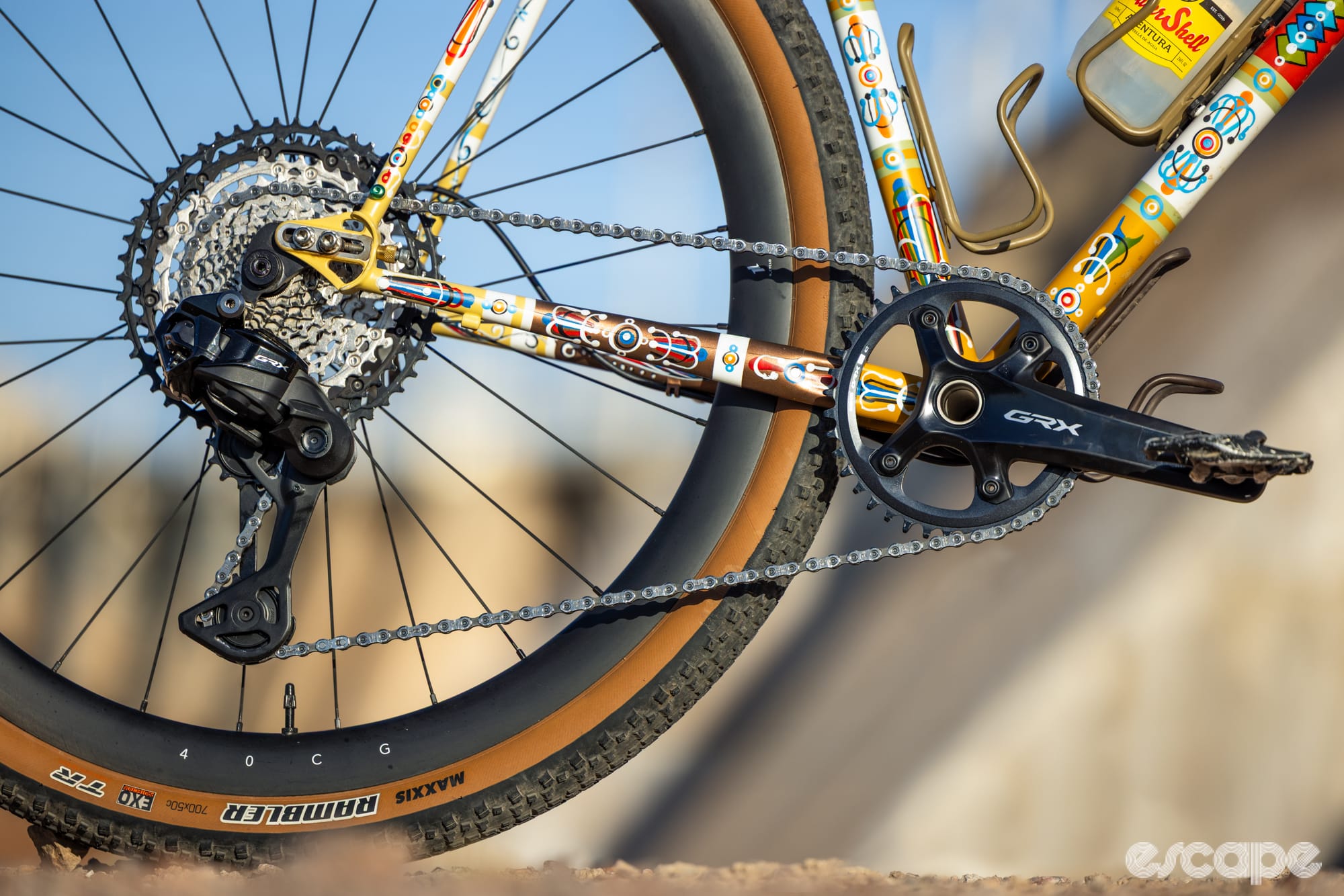In the end, the strongest team won, easily. I can say that about the 2023 Vuelta a España even with three stages yet to go because, barring a Chicxulub-style event on the Iberian peninsula, one of Jumbo-Visma’s riders is going to win in Madrid and very likely the team will take an unprecedented podium sweep in a Grand Tour with, in some order, current leader Sepp Kuss and superstars Jonas Vingegaard and Primož Roglič, who trail close behind in the standings.
And I guess I should thank Jumbo for taking what could have been a somnambulant bore of a scenario – one team squishing all life out of the race with its dominance – and instead making it the most must-see TV event since the Battle of Winterfell. The return to relative normal on stage 18, following an apparent meeting last night to hash out the leadership question, may have settled things for now; it's hard to say, as Roglič made little secret of his disagreement with the new order ("I have my own thoughts," he said), and stage 20 carries non-trivial risks for Kuss. But the question is, whether or not the change comes in time to salvage Kuss' overall victory, what irreversible damage to the team has already been done?
For all its dominance at the Vuelta, Jumbo has made any number of mistakes here: bringing Vingegaard to the race at all, for one. But the fateful management fuck-up that might make them a Harvard Business Review case study is the decision – either overt or by omission – to let the riders sort out the race on the road even after Sepp Kuss held the lead to the second rest day.
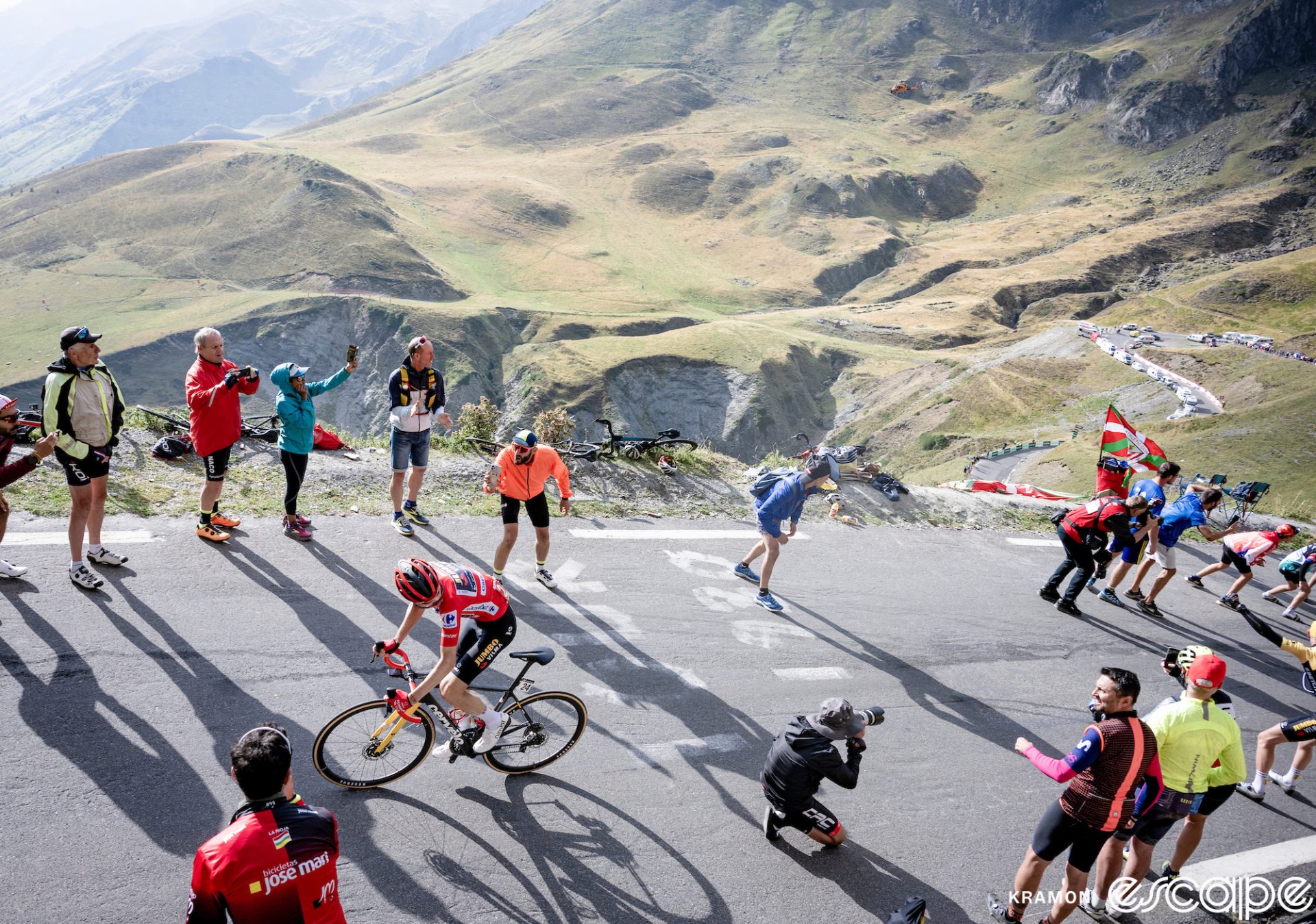
The consequences of that choice may reverberate far into the future. Predictions are folly, but I will be unsurprised if in a few years’ time we look back at the 2023 season, and this Vuelta in particular, as the peak of Jumbo's power. And if that happens, what will cause its slide off the top steps of the podium has nothing to do with the competition, and everything to do with the team’s own hubris.
No adults on the Jumbo bus
My colleague Dane Cash made the case yesterday for an intriguing theory making the rounds: that the team’s lack of support for Kuss's red jersey has less to do with Kuss’s own chances for the win and more an intra-team rivalry between Jonas Vingegaard and Primož Roglič. That hypothesis – call it the Unified Field Theory of the 2023 Vuelta – is the only thing that, for me, squares Rogla's and Jonas’ comments that they want to see Sepp win with the fact that their actions are the very thing – the only thing! – that threaten to make that impossible.
It's quite simple: Kuss wasn’t supposed to be in this position. He came to the Vuelta to ride for Roglič and Vingegaard, and found himself in red partly as the result of a chaotic sixth stage, which began with several nasty crashes and splits, with then-race leader Remco Evenepoel off the back and chasing. At one point, the lead group had 42 riders, including such dangerous names as Mikel Landa, Marc Soler, and Romain Bardet. So yeah, fortuitous. But what I reject is the argument I've seen made that this was somehow solely responsible for Kuss' current position.
When almost a quarter of the field is up the road (especially with a handful of potential GC guys), that isn’t a breakaway; it’s a selection, and Jumbo was well-represented with Kuss, Jan Tratnik, Dylan van Baarle, and Attila Valter. Kuss went clear with two kilometers to go, and his mind was distant enough from GC that as he came to the line he slowed and rode next to the barriers to high-five fans, something of a Kuss trademark when he wins. Still, the chase was far enough back that, when the standings settled, Kuss was second overall, almost three minutes up on most of the main contenders. He’d take the red jersey two days later when Roglič won the stage. At that point, the two Jumbo captains were just 7th and 8th overall, but the "GC Kuss" talk was barely a murmur.
It wasn’t until Kuss’ surprisingly resilient ride in the stage 10 time trial that the idea of him as a Vuelta winner began to take shape. And it was that day – or stage 11, when Kuss easily held serve on La Laguna Negra, or stage 13, when rival Remco Evenepoel cracked and the team went 1-2-3 on the Tourmalet, with Kuss losing just 30 seconds to a clearly motivated Vingegaard and narrowly beating Roglič, signaling clearly that he had great form and yeah, could actually win this thing – that team management screwed up.
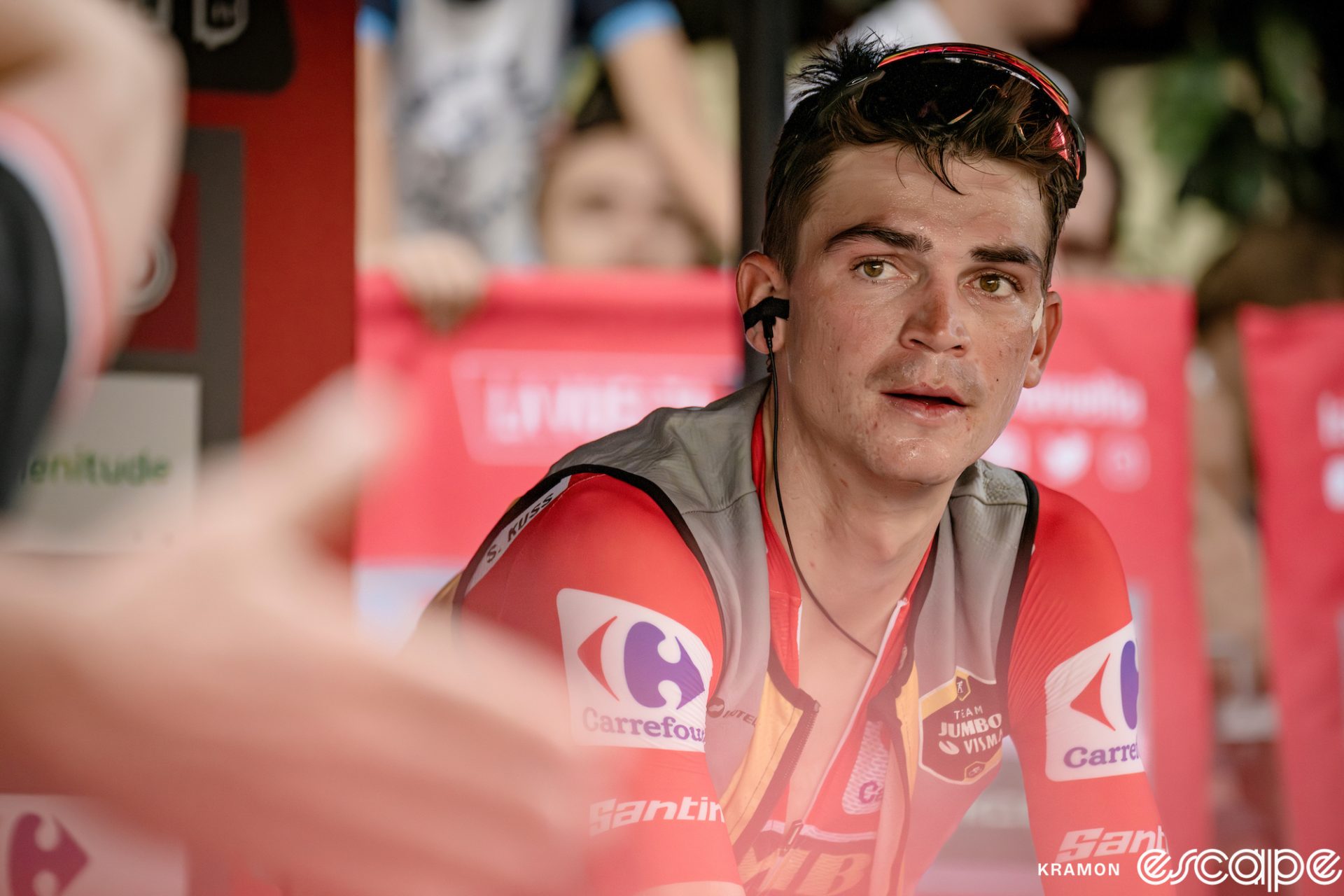
Any of those days – or, failing that, the relative calm of the second rest day – was a moment to pull all three riders aside for a private meeting and tell them: if Kuss loses the pace due to another team’s efforts, we ride to win with Jonas and Primož, but not until then. And above all: We don’t attack our own. Instead, the team’s been stepping on every clearly visible rake in reach, maintaining that, no, your eyes are lying and Vingegaard isn’t really attacking Kuss (he’s just scouting out the finish line), and yes, we do want Kuss to win but as Roglič only half-apologetically explained, he has responsibilities, so everyone go like you can and we sort it out at the finish, huh?
And so, the team has seemingly let a simmering rivalry between Vingegaard – its 26-year-old two-time Tour winner – and Roglič, who clearly feels he has some unfinished business with the yellow jersey, ruin all the good vibes of Sepp-tember. Maybe the team’s original intention in bringing Jonas to the Vuelta at all was to let the two superstars duke it out and settle the pecking order and Kuss inadvertently got in the way. Who knows? But once Kuss’s legitimate GC prospects solidified, the team messed up in a big way by not immediately ordering a ceasefire.
That choice forced its riders to sort out a hierarchy themselves, in real time on the road, in a situation that had scrambled the usual pecking order, putting the deferential, people-pleasing Kuss in the untenable position of having to explicitly ask the team to support him over two captains who have six Grand Tour wins between them (which, to Kuss' credit, he eventually did). Even Vingegaard expressed some frustration at management's hands-off approach, telling Danish TV2 before the start of stage 18 that he was "in doubt about what to do" when Roglič's pacemaking on the Angliru gapped Kuss. "There wasn't anyone who told me what to do then and there," he said.
A win, sure; at what cost?
Stage 1 flat tire for Vingegaard aside, Jumbo has been lucky this Vuelta: lucky that Evenepoel had one inexplicably awful day that destroyed his GC hopes; lucky that UAE doesn’t seem to know tactics from plate tectonics; and lucky that Bahrain’s shows of team strength on stages 17 and 18 weren’t in service of a 2017-vintage Mikel Landa. You get the feeling that if Tadej Pogačar were here, he’d be meming his way into Jumbo’s heads every night on social and flashing a wicked smile with every attack on the road.
The team’s depth and power are such that, even with its dysfunction, Jonas’ and Primož’s attacks have put it even more firmly in control of the race than it was at the start of the week; the two captains have tightened their gaps to Kuss even as other challengers have fallen away. But Jumbo’s dysfunction has been on display as much as its dominance, and that's every bit as powerful a force in what comes next.
The team needs a new sponsor after next season, after all. And unless there's yet another bike-loving (and tax-loss-harvest-loving) billionaire or a state-owned enterprise out there that doesn’t actually care about marketing fundamentals, it has to justify its existence on said sponsor’s budget sheet.
Sure, a 1-2-3 sweep at the Vuelta and taking all three Grand Tours in a calendar year seems like great press and, indeed, their performance is the defining story of the race. But a tour of Jumbo’s social-media accounts the past few days tells a far different story: a team of which many are already skeptical massively damaged its goodwill with fans by carelessly stomping all over the one feel-good underdog story it might have had.
If you’re a CMO looking to justify a €15-20 million per year outlay to your shareholders or C-suite colleagues, would you want to show them the replies, comments, and quote tweets from Jumbo's posts from this past week? The head-scratching media stories and clips of puzzled Eurosport analysts questioning – forcefully – what in the French-fried fuck you are doing? Sure, Tour de France data will form the heart of any decent sponsor pitch deck, but are the awkward, internecine vibes from the Vuelta the final impression you want to leave with everyone for months until a new season offers a clean slate?
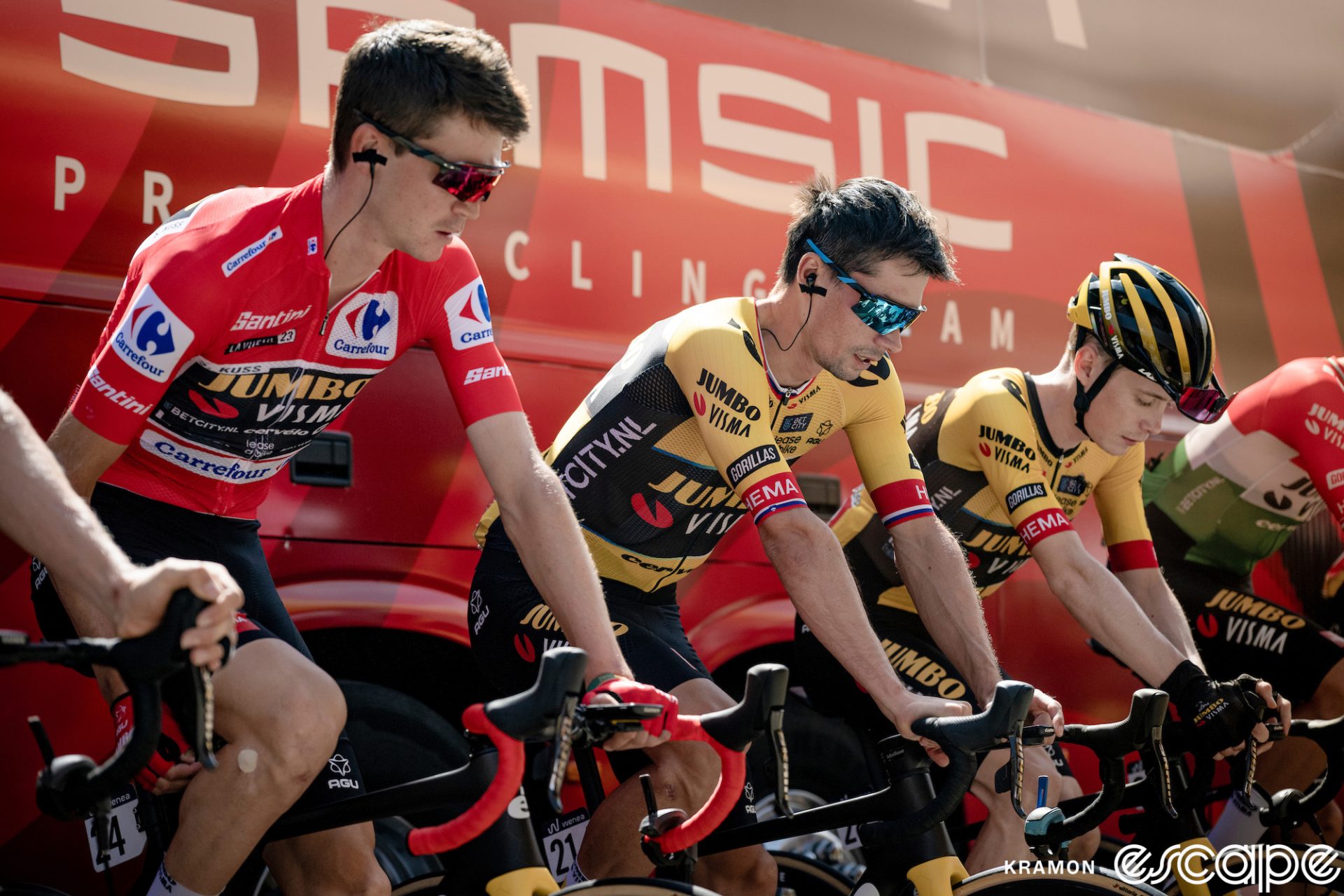
There's also the potential impact on the team's competitive ability to meet those undoubtedly high sponsor expectations. After this Vuelta, it’s hard to imagine Roglič and Vingegaard agreeably co-existing in the same Grand Tour squad ever again; there will be no more dream team rosters like this Vuelta or last year's Tour, and that hurts its depth and tactical options down the road.
Vingegaard and Roglič's behavior also raises serious questions about their leadership abilities. Roglič can understandably be frustrated that his campaign to win a record-tying fourth Vuelta is now in the backseat to Kuss. But watching him pout in the wheels today and then his honest-but-passive-aggressive comments post-stage, I have low confidence he'll refrain from attacking Kuss on Saturday; he'll probably then feign confusion that he thought the race leader was in trouble and he had to salvage the win for the team.
As for Vingegaard, his TV2 comments are revealing in that he was waiting to be told what to do in a situation where that choice was obvious to everyone else. Instead, he looked back on Angliru, saw Kuss falling behind, and ... just kept going. "Come to Jumbo, get sandbagged by your own captain, who's signed through 2027" is a helluva recruiting pitch for any climber or stage race hopeful who has his own ambitions for some future day. Jumbo pays well, but what price do you put on your team telling you it believes in you and supports you when that once-a-career chance at greatness comes?
Finally, riders like Kuss can and do bury themselves every day for their leaders in no small part because they feel valued, and more than in just salary. It's not hard to imagine a future Tour where Kuss simply doesn't have the legs to destroy Jumbo's rivals on the Col de la Loze - not because of petty payback, but rather a genuine psychological block that prevents him from accessing the deep reservoirs of the subconscious self that are required for such an effort. Things are perhaps smoothed over for now, but what does such a public rejection – humiliation, even – of Kuss' mild and entirely reasonable “I also want a shot” request do to a rider's ability to selflessly sacrifice like that? How do you repair that damaged trust?
All that is what Jumbo risks manifesting with its disrespectful treatment of Kuss the past week: the corrosion of doubt and mistrust within the organization that will be felt for years to come. Jumbo has come a remarkable way from its decade-ago existential struggle in the wake of a doping scandal that cost it one of the longest-running backers in the sport. It’s now unquestionably the top team in men’s road racing, an enviable juggernaut of talent and skill. It seems to have forgotten that it once fought simply to survive, or that things can turn for the worse more quickly than the better.
I go back to my soft prediction – because even if the belated ceasefire holds, much of the damage has already been done – that we may very well look back on this moment as peak Jumbo-Visma. In the end, none of the team’s rivals had the strength or tactical plan or luck to beat it in but a few races of note this year. But the Vuelta debacle has exposed a kind of rust at its core that we had never previously seen. All things come to an end. And as with all great empires, Jumbo-Visma will crumble – when it finally does – from within. Maybe the downfall began here.
Did we do a good job with this story?

